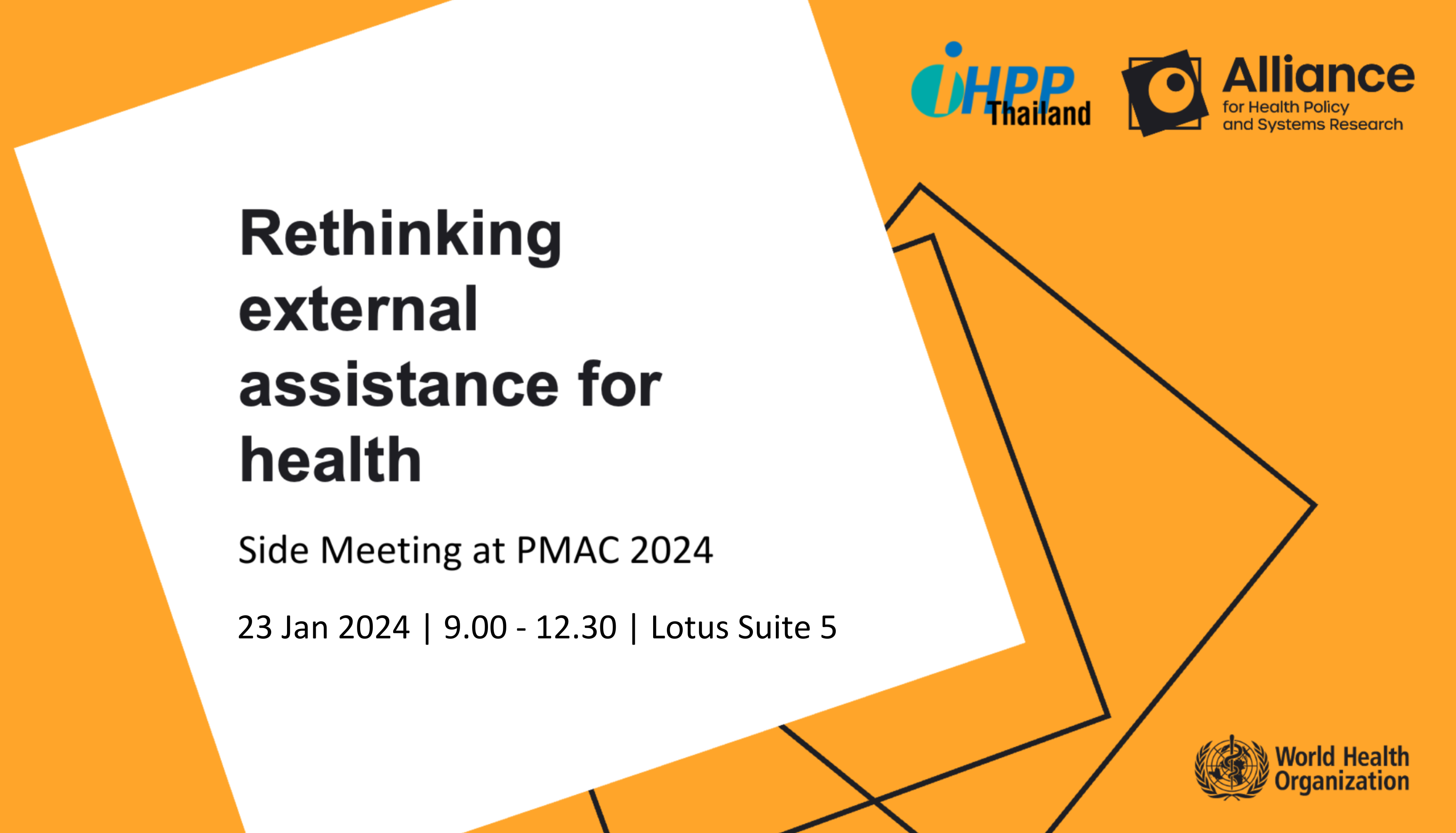Side Meetings
SMB101
Rethinking External Assistance for Health
23
Jan
- International Health Policy Programme
- Alliance for Health Policy and Systems Research, WHO
- WHO Health Financing and Economics

The COVID-19 pandemic and the economic crisis that it has triggered has had major implications for national health systems and the broader international aid architecture. This has forced countries and development partners to reconsider several long-held assumptions around external assistance. This includes assumptions around the unidirectional nature of donor transitions, whereby countries ‘graduate’ from external assistance on account of achieving pre-defined income thresholds. One of the economic consequences of the COVID-19 pandemic has been that of low-and-middle-income countries (LMICs) facing stagnation or even reversals around transition related milestones resulting in increased dependence on external assistance. At the very same time, the economic crisis in many high-income countries (HICs) has led to a shrinking of external assistance budgets, as well as elevated interest rates. LMICs previously dependent on external assistance are thus simultaneously faced with a challenging environment in terms of their own economic growth, reduced prospects for long-term availability of donor resources, as well as higher interest rates making it difficult for them to borrow and service their existing debt obligations. The experience of the COVID-19 pandemic characterized by vaccine nationalism and the reluctance of many HIC governments to consider effective mechanisms for more equitable intellectual property regimes proposed by countries of the Global South has furthered calls for a fundamental reform of the way that external assistance is designed and implemented. This includes effectively addressing power asymmetries between donors and recipients and clarifying how external assistance can effectively align with and contribute to nationally owned and driven health systems strengthening efforts, as opposed to undermining national health systems through a plethora of uncoordinated vertical programs.
Reflecting the need for new knowledge to inform the paradigm shifts mentioned above, the Alliance for Health Policy and Systems Research, WHO and the Department of Health Financing and Economics, WHO have been collaborating on the development of a supplement issue of Health Policy and Planning (HPP) on Rethinking External Assistance for Health. This supplement issue will bring together 14 articles (selected from an initial list of 105 abstracts) that address different facets related to rethinking external assistance to make it fit-for-purpose to the needs of LMICs today. The articles discuss country examples from Asia, Africa and Eastern Europe and include both original research papers as well as innovation and practice reports co-authored by policymakers. They adopt a wide range of methods including quantitative analysis of development assistance for health (DAH) databases, systems thinking approaches such as causal loop diagrams as well as in-depth interviews to better understand policy processes and why things happened as they did.
The side meeting on Rethinking External Assistance for Health will serve to both launch the supplement issue and stimulate discussion and debate among policymakers, development partners and academic researchers through a series of focused panel discussions and thematic round tables. The aim of these discussions will be to:
- Reflect on where we are globally in terms of the needed rethinking of external assistance.
- What more needs to be done towards ensuring that the envisioned paradigm shifts become a reality.
- How these shifts can be brought about in light of existing and often entrenched interests that favour the status quo.

